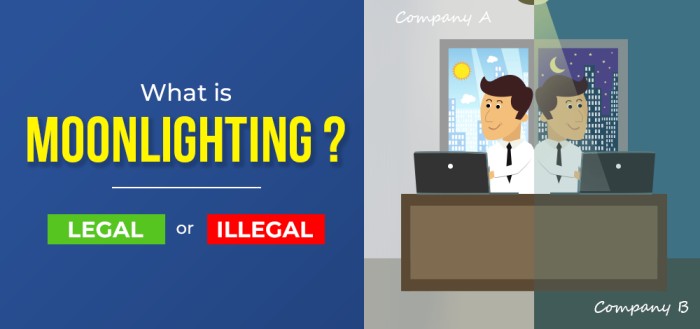Moonlighting: What is it, and is it legal in India?
Moonlighting is not a concept and has existed in the industry for a long time. It is considered to be a concept where the employees being a part of one organization enroll themselves in another side job to earn more money. This concept got more limelight with the concept of work from home, where employees started working in multiple organizations without the knowledge of their employers. Many have been recruited for full-time jobs and are working in other companies as freelancers.

What started the debate?
The legality of the concept is a debatable topic. The topic came into the limelight when Swiggy gave a green signal to it. The company permitted its employees to work in other companies so that they could earn more during the weekends and still not have any effect on productivity. Then why are the IT companies against it? We all live in a digital world, and when an employee joins a competitive brand, disclosing loopholes or exchanging data can cause loss to the parent organization.
When the pandemic struck, and people faced issues like job layoffs, many started looking for job opportunities where they did not have to work full time and could still manage to have a good income. Companies like Infosys are completely against their employees working for wit other companies as a second job. It has also recently fired 300 employees who were found to be a part of a second job.
A breach and violation of integrity
Moonlighting is a kind of cheating that you are doing with your company that is paying you a good amount. It is completely illegal to have dual employment, and companies advise their employees to read the contract they signed while being appointed to protect themselves from any breach. It is also considered to be a violation of integrity within the company.
Employees who moonlight may lose their jobs.
Legal experts claim that courts have frequently permitted employers to terminate employment when they are found to be moonlighting.
Under the Factories Act, double employment is prohibited. However, in other areas, IT businesses are exempt from this rule. While various businesses have varied views and rules about moonlighting, the activity occasionally poses a challenge for employers.
Additionally, the side business a worker chooses to pursue must not put the confidentiality of their principal employment at risk of leakage.
